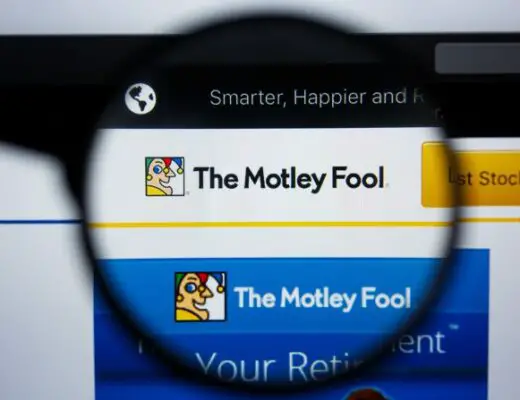
CommonCentsMom.com is advertiser-supported: we may earn compensation from the products and offers mentioned in this article. However, any expressed opinions are our own and aren't influenced by compensation. The contents of the CommonCentsMom.com website, such as text, graphics, images, and other material contained on this site (“Content”) are for informational purposes only. The Content is not intended to be a substitute for professional financial or legal advice. Always seek the advice of your Financial Advisor, CPA and Lawyer with any questions you may have regarding your situation. Never disregard professional advice or delay in seeking it because of something you have read on this website!
Financial independence is one of the ultimate goals of many adults. While it’s high up on the to-do list for most people, achieving it isn’t always cut and dried since being financially free varies from person to person.
For example, some may see financial freedom as having enough income and savings to support themselves or their family in the present and future, while others consider it as a debt-free life. That’s why there’s also no one-size-fits-all way to financial independence.
What’s certain is the roadblocks most people encounter that make them financially unsuccessful. Awareness of these obstacles and appropriately dealing with them can bring people one step closer to reaching their financial goals. Check them out here:
Insufficient Emergency Plans
Life is full of unexpected events, and not planning for them can derail your financial goals. To be financially prepared for emergencies, focus on two essential steps: get enough health insurance and build an emergency fund.
If you live in a country that doesn’t offer free or universal healthcare, getting health insurance greatly benefits you. It primarily prevents your bank balance from hitting zero during a medical crisis. It also safeguards you from accumulating massive debts to cover medical bills.
Health insurance costs vary depending on your marital status, employment status, dependents, preferred coverage, the insurance provider, and other factors. Hence, requesting online health insurance quotes or visiting the insurer’s office helps you determine which plan works for you.
Other unforeseen situations may not be covered by health insurance, such as job loss and sudden death. This is where an emergency fund comes in. It acts as a financial safety net during tough times, allowing you to navigate challenges without financial stress.
Keep in mind that your emergency fund should be financially enough for you and your family. Many experts recommend setting aside three to six months’ worth of household expenses. While this may take some dedication and effort, it’s undoubtedly a smart financial strategy and a crucial aspect of financial independence.
Unrealistic Goals
Many people set unsuitable goals for their journey to financial success. These goals are often unclear, too broad, or overly ambitious without a specific timeline. Having unrealistic goals can be discouraging, especially when today’s young adults are drawn to emulating extravagant celebrity lifestyles and excessive spending.
These young adults, typically under the age of 35, facing financial problems are called “Generation Squeeze.” They often get low income, experience prolonged economic difficulties, and are burdened by debt, such as student loans. Despite this, they establish high standards without giving themselves enough time to accomplish them.
To set realistic financial goals, clearly determine them. Break them down into smaller, manageable steps, then categorize them based on importance. Ensure they align with your financial situation. Generally, consider your income, monthly expenses, debt, and savings. The key is to create “SMART”—specific, measurable, achievable, realistic, and time-bound—goals without causing unnecessary stress.
FOMO Lifestyle
Today’s consumers tend to experience the fear of missing out (FOMO). It’s the anxiety you can feel when you think you’re missing out on fun and exciting experiences others are having. It’s often triggered by what you see on social media.
Although it’s a good motivation to work hard at some point, FOMO can lead individuals to make impulsive or unnecessary purchases to keep up with the perceived lifestyles of others. As a result, they end up derailing their budget and having huge debt.
Don’t let FOMO keep you from financial freedom. This applies not only to big purchases but also to small, spur-of-the-moment splurges like unnecessary shopping trips. Before making purchases or spending, always take a step back and ask yourself whether they’re a must.
More importantly, realize that there’ll always be people with a lifestyle beyond your means, and that’s okay. If it’s hard, consider aggressive measures like deactivating social media accounts or hiding credit cards. Sometimes, making sacrifices is necessary to stay on track.
Lack of Financial Literacy
Another major hurdle in achieving financial independence is being ignorant of core personal finance principles. These include budgeting, saving, personal financial and debt management, taxation, and investing.
Understanding these financial concepts is crucial because they form the foundation for sound financial management. Without a grasp of them, making informed decisions, setting financial goals, and ultimately achieving the independence you seek becomes difficult.
High Debt
Having too much debt can make it hard to be financially independent. It’s often a result of poor personal finance management and insufficient knowledge of debt management and financial preparedness.
To quickly pay off high debt, start by understanding your finances through a detailed budget, cutting unnecessary expenses, and redirecting windfalls toward debt. Additionally, learn the two most common ways to pay off debt: debt avalanche and debt snowball methods.
If you have high-interest debt, experts recommend the debt avalanche method. It saves money and time, but it requires a lot of discipline to consistently use your extra money to pay off a specific debt, not just the minimum. If you lose motivation, it won’t be as effective.
The debt snowball method means tackling smaller debts first and then moving on to larger ones. It boosts motivation by providing quick results, but it doesn’t cut down the overall interest paid as much as the debt avalanche method.
Final Thoughts
Financial independence is an ideal yet elusive goal. It comes with a lot of hurdles that we can’t completely avoid. Thankfully, anticipating and identifying them in advance allows us to develop proactive strategies and make more informed decisions. Hence, with due diligence and discipline, the pursuit of financial independence can be within your arm’s reach.







